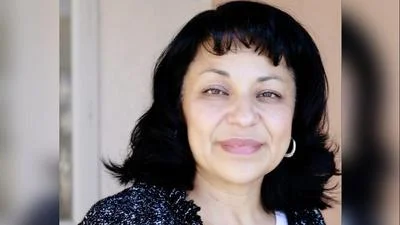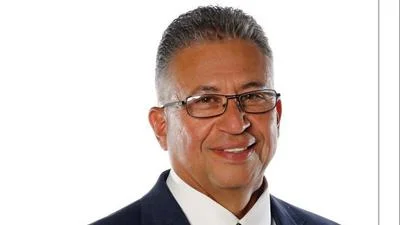The New Mexico Public Regulatory Commission has been asked to conduct a “formal, unbiased study” on the concept of creating state-controlled utilities following a request from 16 Democratic legislators, eight senators and eight representatives.
However, organizations such as the New Mexico Business Coalition are urging New Mexicans to push back on the idea, arguing it is a bad plan that wouldn’t work for the state or ratepayers.
“We no longer need to trade off the environment and the economy against each other as we have abundant natural resources in New Mexico,” state Sen. Liz Stefanics (D-Santa Fe County) said in a statement released when the proposal was announced in December. “We must look at alternative ways to structure the provision of energy so that we can meet our goals as quickly and equitably as possible.”
Kenneth Costello of Santa Fe, a regulatory economist and independent consultant, said the proposal should be swiftly rejected.
In a written comment before the Public Regulation Commission (PRC), Costello laid out the pros and cons of publicly controlled utilities.
“Leaving municipal utilities under local control subjects them to greater political pressures than utilities regulated by a state commission,” he wrote. “Specifically, evidence shows that local politics frequently results in a government-run enterprise that place the well-being of special interest groups before those of the general public. That behavior would not constitute a ‘better job.’”
Costello told the New Mexico Sun that the PRC appears skeptical of the concept.
“They’ve been taken off the table for now," he said. ''There’s less than two weeks to the legislative session, so it seems like there’s a good chance nothing will be done. If that’s true, then I don’t know what the commission is going to do. I think they will punt on it.”
Costello said the memorials refer to a statewide authority and that is what was presented before the commission.
“But I don’t know how that would work,” he said. “That’s highly unusual for a state to own all the electric system.”
“One in seven Americans are served by a public power utility,” according to PublicPower.org. “More than 2,000 communities in 49 states and five U.S. territories have a public power utility.”
Nebraska is the only state where all electricity is provided by publicly owned utilities, including municipal utilities, electric cooperatives and public power districts.
Costello said he doubts public ownership would be a cost-effective way to manage utilities.
However, Costello noted, there are two publicly owned utility companies in New Mexico and their rates, on average, are higher than the rates of the three private utilities.
There are three investor-owned electric utility firms in the state, Public Service Company of New Mexico, El Paso Electric and Southwestern Public Service. He said if this plan was attempted, the utilities would assuredly sue.
“There’d be litigation for years and years,” Costello said.
He said that in many ways, this is about power — political, not economic.
“It's being pushed by some groups that want more local control,” Costello said. “They want more renewable energy; they want what’s called social justice. They think equity that will be promoted more if the utilities are publicly owned.”
New Mexico Business Coalition President Carla Sonntag said in most cases, municipalities across the country are abandoning this concept. New Mexico should not attempt such a drastic change, Sonntag said.
The coalition released a petition that noted, “Our state and some municipalities struggle to manage the assets currently under their purview. Do you think they could handle managing a utility company effectively?”
Costello provided a longer version of his written comments to the New Mexico Sun. He wrote that such a change has more to do with politics than sound reasoning.
“I would outright reject switching from private to public power as a viable policy action to deal with whatever problem its advocates identify: it is extremely costly and arduous," Costello wrote. "It would be a waste of money to even study this topic presently. Can’t the state find better ways to spend its money? We have seen several examples where studies on public power, paid for by taxpayers, led nowhere. If public power advocates want to fund such studies, they should have the right to do so, but not with taxpayers’ money.
“May the best arguments carry the day," he added. "Of course, this may be merely fantasy, but that to me would be the right way to determine whether switching from private to public power in the public interest.”
He also referred to a June 4, 2021, opinion piece in the Bangor Daily News written by Joseph McDonnell, a professor of public policy and management at the Edmund S. Muskie School of Public Service at the University of Southern Maine.
“Good feelings from lower rates were short-lived, if they were even noticed,” McDonnell wrote about a similar proposal in Maine. “The curious thing about electric bills is that usage, more than rates, determines the size of the bill. As the weather becomes colder in the winter or hotter in the summer, and as customers add more electric devices, these more than rates determine the size of the bill.
“If tomorrow the Pine State utility took over the electric system, it would have the same challenges as the current utilities,” he wrote. “Would it be willing to raise rates to improve reliability, service or to promote renewable energy? The tradeoff between rates, reliability and renewables is the challenge for today’s utilities. A takeover attempt saddles Maine with a risky undertaking just when it has to address these important tradeoffs.”
Costello has conducted extensive research and written on a wide variety of topics related to the energy industries and public utility regulation, according to an online biography.
Costello is the recipient of the 2017 Crystal Award for Distinguished Contribution to Public Utility Regulatory Policy, sponsored by the Financial Research Institute at the University of Missouri-Columbia, his bio states. It adds that he received bachelor's and master's degrees from Marquette University and has done doctoral work in economics at the University of Chicago.








